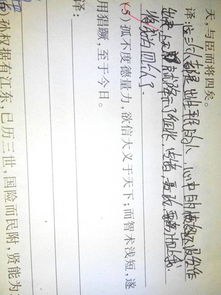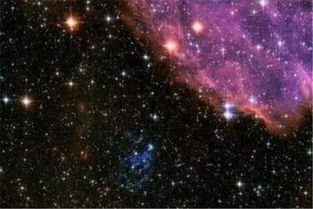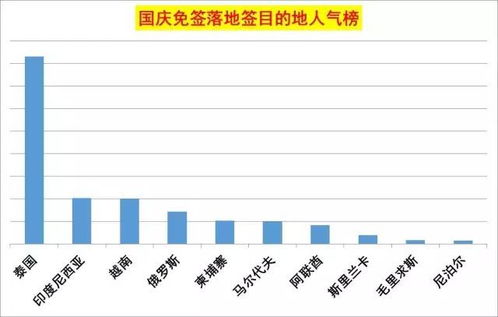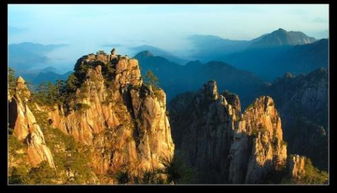元宵节英语介绍100字(元宵节英文介绍200词)
- 作文
- 2023-04-24 11:38:01
- -
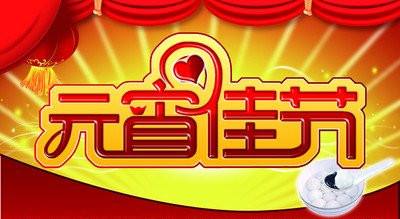
元宵节的英文介绍怎么写?
The Lantern Festival is one of the traditional Chinese festivals, also known as Shangyuan Festival, Little First month, Yuanxi festival or Lantern Festival, which falls on the 15th day of the first lunar month.
The 15th day of the first lunar month is the night of the first full moon in a year, so the 15th day is called the Lantern Festival.
The formation of the Lantern Festival has a long process, rooted in the ancient custom of turning on lights to pray for good luck.
The Lantern Festival is mainly a series of traditional folk activities, such as watching lanterns, eating glutinous rice balls, guessing lantern riddles and setting off fireworks.
元宵节,中国的传统节日之一,又称上元节、小正月、元夕或灯节,时间为每年农历正月十五。
正月是农历的元月,古人称“夜”为“宵”,正月十五是一年中第一个月圆之夜,所以称正月十五为“元宵节”。
元宵节的形成有一个较长的过程,根源于民间开灯祈福古俗。
元宵节主要有赏花灯、吃汤圆、猜灯谜、放烟花等一系列传统民俗活动。
节期节俗
元宵节的节期与节俗活动,是随历史的发展而延长、扩展的。就节期长短而言,汉代才一天,到唐代已为三天,宋代则长达五天。
明代更是自初八点灯,一直到正月十七的夜里才落灯,是中国历史上最长的灯节,与春节相接,白昼为市,热闹非凡,夜间燃灯,蔚为壮观。特别是那精巧、多彩的灯火,更使其成为春节期间娱乐活动的高潮。
至清代,又增加了舞龙、舞狮、跑旱船、踩高跷、扭秧歌等“百戏”内容,只是节期缩短为四到五天。
[img]用英语介绍元宵节
用英语介绍元宵节如下:
介绍元宵节英语作文【一】
正月十五元宵节,民间家家户户张灯结彩,热热闹闹吃元宵,开开心心过元宵节了。我们学校也不例外,每个同学吃两个大元宵。老师说:“吃到红枣陷的同学可以获得一份意想不到的礼品,还能拍一张照片做纪念呢。”
吃元宵前我心里默默祈祷:红枣啊红枣你会不会i藏在我的元宵里呢?那个幸运的同学会不会是我呢?我拿起第一个元宵一口咬了下去,唉!是豆沙的,但是很甜,我想:还有一点希望,我毫不犹豫地拿起第二个元宵迫不及待的咬了下去,运气真不好,是菜陷的,但是很香。
虽然今天没吃到红枣陷的元宵,但我也很高兴,因为我和老师,同学们在新的一年里快乐地过了一个热闹的元宵节!
On the 15th day of the first lunar month, the Lantern Festival is celebrated on the Lantern Festival. Our school is no exception, each student eats two big rice dumplings. The teacher said: "the students who eat the red jujube can get an unexpected gift, and can also take a photo as a souvenir."
Before eating yuanxiao I silently pray: red date ah red date you will I hide in my yuanxiao? And that lucky fellow won't be me? I took the first yuanxiao to bite down, alas!
It was bean paste, but very sweet, I think: there is a little hope, I did not hesitate to pick up the second yuanxiao can't wait to bite down, the luck is really bad, is the food, but very fragrant.
Although today did not eat the red date of the Lantern Festival, but I am also very happy, because I and the teacher, the students in the New Year happily passed a lively Lantern Festival!
介绍元宵节英语作文【二】
正月十五,是我国传统的元宵节,在这一天,人们不仅有吃汤圆的风俗,而且还有观灯展的风俗。在这一天,大街小巷、家家户户都会张灯结彩。大人和孩子纷纷走出家门,观看奇形怪状的花灯。我也随着人流挤入了观花灯的队伍。
瞧!一位“仙女”正驾着祥云在空中飘荡,她手里捧着一只花篮,花篮里盛满了五彩缤纷的花,这就是“天女散花”灯。在她旁边还站着两只威风凛凛的“老虎”灯,每只都有两米高,两只“老虎”双目放着光,还不停地转动着,旁边还有许多宫灯、荷花灯等,交相辉映,争奇斗艳。
再瞧那边的熊猫灯,一只“小熊猫”站在一边,手里拿着杯子吹泡泡,一只“大熊猫”站在一边拿着照相机,只见那“灯”一闪一闪,“熊猫妈妈”正给“小熊猫”拍照呢。还有飞机起落灯、鲤鱼跃龙门灯真是眼花缭乱,神采飞扬,好像进入仙境一般。人们在美丽的彩灯间穿行,脸上写满了快乐和幸福。
On the fifteenth day of the first month, it is the traditional Lantern Festival in our country. On this day, people not only have the custom of eating dumplings, but also the custom of watching lanterns.
On this day, all the streets and alleys will be decorated with lights. Adults and children came out of the house to watch the strange lanterns. I also crowded into the queue of people watching lanterns.Look!
A "fairy" is riding in the air with the auspicious clouds, she holds a flower basket in her hand, the flower basket full of colorful flowers, this is the "sky woman scatter" lamp.
Standing next to her also two jovian "tiger" lamp, each have two meters high, two "tiger" binocular eyes light up, still kept turning, alongside many palace lantern, lotus lanterns, hand in photograph reflect, to outshine each other.
Then look at the panda light over there, a "panda" standing on the side, holding the glass blowing bubbles, a "panda" standing on the side holding a camera, see the "light" twinkle, "" panda mother's taking a picture of" panda ".
There is also the aircraft takeoff and landing lights, the lei yue dragon gate light is really dazzling, the spirit is flying, as if into a fairyland. People walk through the beautiful lights, and their faces are filled with joy and happiness.
介绍元宵节英语作文【三】
元宵节是中国的传统节日之一,在每年的正月十五,非常热闹。关于元宵节还有一个传说呢。从前,有一个村庄,村庄旁边有座山,山里面有许多野兽,经常出来吃人,村民们就四处射杀野兽。突然有一天,一只神鸟因为受伤迷了路,被一个不知情的村民给射死了。
天帝知道后非常生气,就准备在正月十五那天放火烧这个村子。村民们知道后非常害怕,一位老人建议大家在正月十五放鞭炮、燃烟花,让天帝以为村子着火了。大家就听从了老人的建议,果然骗过了天帝,保护了大家的房屋和财物。
为了纪念这件事,大家就会在每年的正月十五那天放鞭炮和燃烟花。元宵节不仅要放鞭炮和燃烟花,还要猜灯谜。记得二年级时,元宵节到了,学校搞起了“猜灯谜”活动。各种漂亮的花灯“齐上阵”,琳琅满目,让人眼花缭乱,有些谜语的答案非常古灵精怪,很有意思。元宵节,顾名思义当然要吃元宵了。
当水沸腾的时候,那一个个圆圆的、雪白的元宵就会在水里尽情地翻滚,像是在跳舞似的。熟了,加上点桂花,那香气非常地诱人;咬一口,软软的、粘粘的、甜甜的,非常好吃。元宵的馅儿有好多种,豆沙的、芝麻的、花生的——告诉你们,我恨不得每种都吃上一大碗。我喜欢元宵节,不仅有神奇的传说,还有有趣的猜灯谜活动和好吃的元宵。
Lantern Festival is one of the traditional festivals in China. It is very lively on the fifteenth day of the first month of the year.There is also a legend about the Lantern Festival.
Once upon a time there was a village with a mountain near the village. There were many wild animals in it. One day, a bird was killed by an unwitting villager because he was injured and lost his way.
The emperor was very angry and prepared to set fire to the village on the fifteenth day of the first month. The villagers were very frightened, and an old man suggested that they set off firecrackers and fire fireworks on the 15th day of the first month.
so that the emperor thought the village was on fire. Everyone followed the advice of the old man, and he cheated the emperor of heaven and protected all the houses and property.
To commemorate this event, firecrackers and fireworks are set off on the 15th day of the first month of the year.The Lantern Festival is not only about setting off firecrackers and burning fireworks, but also guessing lantern riddles.
Remember the second grade, the Lantern Festival arrived, the school played the "guessing lantern riddle" activity. All kinds of beautiful lanterns "go into the battle", dazzling, dazzling, some riddle answers are very strange, very interesting.Lantern Festival, as the name implies, will eat yuanxiao.
When the water boils, the round, snow-white lantern will roll in the water, as if dancing. Ripe, with some osmanthus flowers, the fragrance is very attractive; Bite, soft, sticky, sweet, very delicious.
Yuanxiao is filled with a variety of fillings, bean paste, sesame, peanut - tell you, I wish each of them to eat a big bowl.I love the Lantern Festival, not only the magical legends, but also the fun guessing lantern riddles and delicious yuanxiao.
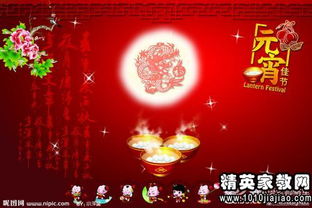
元宵节英语介绍简短有哪些?
1、每年农历的一月十五日是中国人的元宵节,它正好在春节之后。
The Lantern Festival is cele/pated everywhere on January 15th of the lunar calendar, right after the Spring Festival.
2、传统意义上元宵节也是春节活动的一部分。
Traditionally, the Lantern Festival is a part of the Spring Festival.
3、这天是农历新年里第一个月圆的日子。
This day is always the first full moon in the lunar New Year.
4、元宵夜观花灯的习俗开始于两千多年前的西汉时期。
The traditions of viewing decorative lanterns on this night began more than two thousand years ago in the Western Han Dynasty.
5、这也是庆祝春节的延续。
This is also a continuation of the Spring Festival cele/pation.
元宵节英语介绍怎么写?
下面的元宵节英语介绍主要从元宵节的欢闹场景进行介绍,具体如下:
The Lantern Festival is the first full moon day in the year, which symbolizes reunion, harmony and beauty. The fifteenth day of the first month of the lunar calendar is the traditional Chinese festival Lantern Festival.
On this day, people will eat Lantern Festival, enjoy lanterns, guess lantern riddles, watch fireworks, and dance dragons and lions to express their best wishes for spring.
Colorful fireworks soared into the sky, chasing after me, dressing up the night sky with dazzling brilliance, as if competing with the sun and the moon. The colorful balls, like white snowflakes and splendid meteors, make the Lantern Festival night extremely beautiful.
对照译文:
元宵节是一年中第一个月圆的日子,它象征着团团圆圆,和睦美好。每年农历的正月十五日,就是中国的传统节日元宵节。
每到这一天,人们都会以吃元宵、赏花灯、猜灯谜、看烟花、舞龙狮,来寄托对春天最美好的祝福。
五彩斑斓的礼花腾空而起,你追我赶,把夜空装扮得光彩夺目,似乎与日月争辉。一个个缤纷的彩球,像一朵朵洁白的雪花,像一颗颗绚烂的流星,将元宵之夜装扮得无比美丽。
关于元宵的英文介绍
元宵节,又称上元节、小正月、元夕或灯节,是春节之后的第一个重要节日,是中国亦是汉字文化圈的地区和海外华人的传统节日之一。你知道怎么用英文介绍元宵节吗?现在我就带你来看看。
关于元宵节及相关习俗的英语介绍
Popular Chinese name: 元宵节 'first night festival'
Alternative Chinese name: 上元节 'first first festival'
Date: Lunar calendar month 1 day 15 (February 22, 2016)
Importance: ends China's most important festival, Spring Festival
Celebrations: enjoying lanterns, lantern riddles, eating tangyuan a.k.a. yuanxiao (ball dumplings in soup), lion dances, dragon dances, et.
History: about 2,000 years
Greeting: Happy Lantern Festival! 元宵节快乐!
The Lantern Festival is Very Important
The Lantern Festival is the last day (traditionally) of China's most important festival, Spring Festival (春节 Chūnjié /chwn-jyeah/ a.k.a. the Chinese New Year festival). After the Lantern Festival, Chinese New Year taboos are no longer in effect, and all New Year decorations are taken down.
The Lantern Festival is also the first full moon night in the Chinese calendar, marking the return of spring and symbolizing the reunion of family. However, most people cannot celebrate it with their families, because there is no public holiday for this festival.
When Did the Lantern Festival Begin?
The Lantern Festival can be traced back to 2,000 years ago.
In the beginning of the Eastern Han Dynasty (25–220), Emperor Hanmingdi was an advocate of Buddhism. He heard that some monks lit lanterns in the temples to show respect to Buddha on the fifteenth day of the first lunar month. Therefore, he ordered that all the temples, households, and royal palaces should light lanterns on that evening.
This Buddhist custom gradually became a grand festival among the people.
How Do Chinese Celebrate the Lantern Festival?
According to China's various folk customs, people get together on the night of the Lantern Festival to celebrate with different activities.
As China is a vast country with a long history and diverse cultures, Lantern Festival customs and activities vary regionally, including lighting and enjoying (floating, fixed, held, and flying) lanterns, appreciating the bright full moon, setting off fireworks, guessing riddles written on lanterns, eating tangyuan, lion dances, dragon dances, and walking on stilts.
The most important and prevalent customs are enjoying lanterns, guessing lantern riddles, eating tangyuan, and lion dances.
Lighting and Watching Lanterns放花灯、看花灯
Lighting and appreciating lanterns is the main activity of the festival. When the festival comes, lanterns of various shapes and sizes (traditional globes, fish, dragons, goats! — in 2015, up to stories high!) are seen everywhere including households, shopping malls, parks, and streets, attracting numerous viewers. Children may hold small lanterns while walking the streets.
The lanterns' artwork vividly demonstrates traditional Chinese images, such as fruits, flowers, birds, animals, people, and buildings.
In the Taiwanese dialect, the Chinese word for lantern (灯 dēng) is pronounced similarly to (丁 dīng), which means 'a new-born baby boy'. Therefore lighting lanterns means illuminating the future and giving birth.
Lighting lanterns is a way for people to pray that they will have smooth futures and express their best wishes for their families. Women who want to be pregnant would walk under a hanging lantern praying for a child.
Guessing Lantern Riddles 猜灯谜
Guessing (solving) lantern riddles, starting in the Song Dynasty (960–1279), is one of the most important and popular activities of the Lantern Festival. Lantern owners write riddles on paper notes and pasted them upon the colorful lanterns. People crowd round to guess the riddles.
If someone thinks they have the right answer, they can pull the riddle off and go to the lantern owner to check their answer. If the answer is right, there is usually a small gift as a prize.
As riddle guessing is interesting and informative, it has become popular among all social strata.
Lion Dances舞狮子
The lion dance is one of the most outstanding traditional folk dances in China. It can be dated back to the Three Kingdoms Period (220–280).
Ancient people regarded the lion as a symbol of bravery and strength, and thought that it could drive away evil and protect people and their livestock. Therefore, lion dances are performed at important events, especially the Lantern Festival, to ward off evil and pray for good fortune and safety.
The lion dance requires two highly-trained performers in a lion suit. One acts as the head and forelegs, and the other the back and rear legs. Under the guidance of a choreographer, the "lion" dances to the beat of a drum, gong, and cymbals. Sometimes they jump, roll, and do difficult acts such as walking on stilts.
In one lion dance, the "lion" moves from place to place looking for some green vegetables, in which red envelopes with money inside are hidden. The acting is very amusing and spectators enjoy it very much.
Nowadays, the lion dance has spread to many other countries with overseas Chinese, and it is quite popular in countries like Malaysia and Singapore. In many Chinese communities of Europe and America, Chinese people use lion dances or dragon dances to celebrate every Spring Festival and other important events.
Eating Tangyuan (Yuanxiao) 吃汤圆(元宵)
Eating Tangyuan is a very important custom of the Lantern Festival.
Eating tangyuan is an important custom of the Lantern Festival. Tangyuan (汤圆 tāngyuán /tung-ywen/ 'soup round') are also called yuanxiao when eaten for the Lantern Festival, after the festival.
These ball-shaped dumplings made of glutinous rice flour, with different fillings are stuffed inside, usually sweet, such as white sugar, brown sugar, sesame seeds, peanuts, walnuts, rose petals, bean paste, and jujube paste, or any combination of two or three ingredients. Yuanxiao can be boiled, fried, or steamed, and are customarily served in fermented rice soup, called tianjiu (甜酒 tián jiǔ /tyen-jyoh/ 'sweet liquor').
As tangyuan is pronounced similarly to tuanyuan (团圆 /twan-ywen/ 'group round'), which means the whole family gathering together happily, Chinese people believe that the round shape of the balls and their bowls symbolize wholeness and togetherness. Therefore, eating tangyuan on the Lantern Festival is a way for Chinese people to express their best wishes for their family and their future lives.
It is believed that the custom of eating tangyuan originated during the Song Dynasty, and became popular during the Ming (1368–1644) and Qing (1644–1911) periods.
关于元宵节,英语怎么说?
正月是农历的元月,古人称夜为“宵”,所以称正月十五为元宵节。
正月十五日是一年中第一个月圆之夜,也是一元复始,在这个大地回春的夜晚,人们对此加以庆祝,也是庆贺新春的延续。
元宵节又称为“上元节”。按中国民间的传统,在这天上皓月高悬的夜晚,人们要点起彩灯万盏,以示庆贺。出门赏月、燃灯放焰、喜猜灯谜、共吃元宵,合家团聚、同庆佳节,其乐融融。
下面就向大家介绍一些元宵节常用词语的英文说法:
the Lantern Festival 元宵节
rice glue ball 元宵
glutinous rice 糯米
lions/dragons dancing 舞龙/舞狮
guess lantern riddles 猜灯谜
play couplets game 对对联
enjoy beautiful lanterns 赏花灯
snuff 灯花
exhibit of lanterns 灯会
dragon lantern dancing 耍龙灯
walking on stilts 踩高跷
land boat dancing 划旱船
yangko/yangge dance 扭秧歌
beating drums while dancing 打太平鼓
drum dance 腰鼓舞
fireworks party 焰火大会
traditional opera 戏曲
variety show/vaudeville 杂耍
Lantern Festival's temple fair 元宵庙会

本文由作者笔名:。。低 于 2023-04-24 11:38:01发表在本站,原创文章,禁止转载,文章内容仅供娱乐参考,不能盲信。
本文链接:https://www.3m3q.com/zw-87730.html
 。。低
。。低





